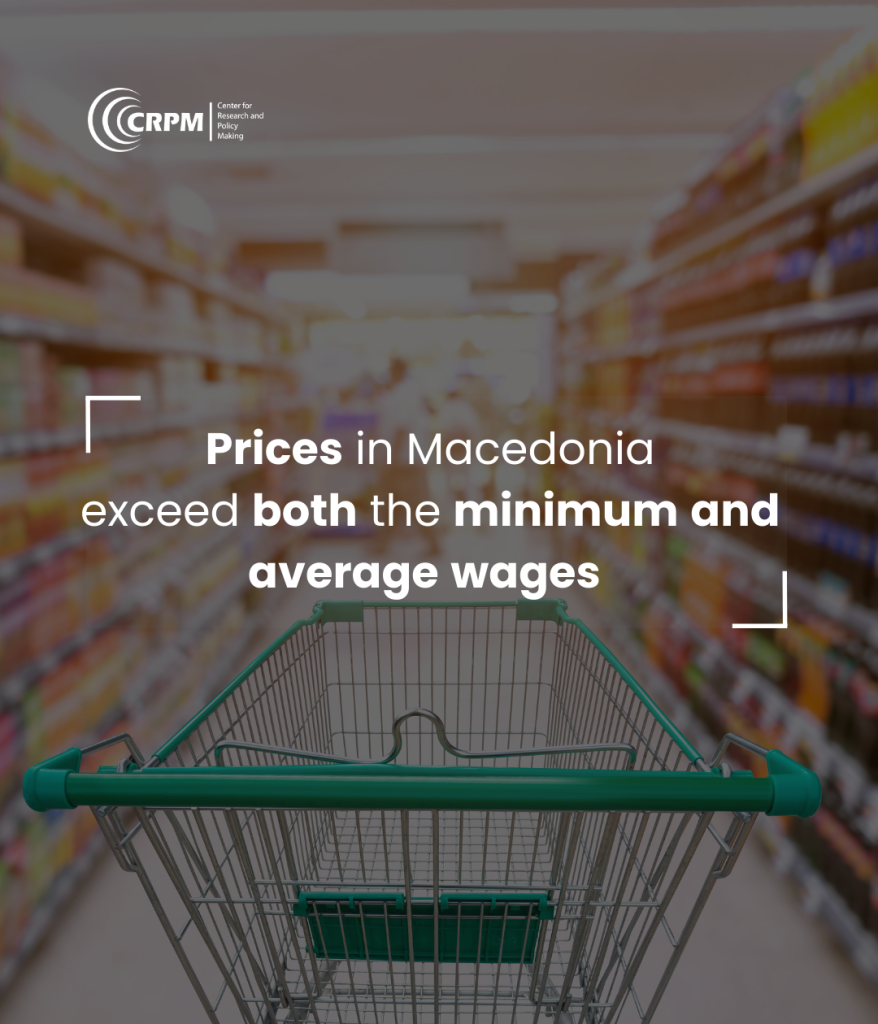Read this column in macedonian.
Given the great interest of the public, within the framework of its authorizations, the Public Revenue Office (PRO) submitted data from the cash turnover registration system (GPRS) in the 8 largest supermarket chains throughout the country for January 24, 30 and 31, 2025. Analysis of the data for Friday, 31.01.2025 compared to the previous Friday, 24.01.2025 and Thursday, the day before the boycott, 30.01.2025, in the eight largest supermarket chains shows a recorded decline in total turnover of 46.59% and 46.29% respectively. What do these data show us? Namely, as in Croatia and other countries in the region of former Yugoslavia, consumers can change their behavior in Macedonia too. Based on these figures, we can freely conclude that the one-day boycott of consumers in Macedonia was successful and that the message against high prices has been sent to the larger retail chains and the institutions of the system. The very fact that the turnover in the largest supermarkets in Macedonia has been halved in one day indicates that it seems that citizens are united in the effect of the boycott on retailers.
The boycott of large retail chains, which began in Croatia and has now spilled over and is spreading to Bosnia and Herzegovina, Montenegro, Macedonia and Slovenia, is something new for the region. If we analyze the structure of household consumption in the region, according to the latest data, the largest share of total consumption (27%) in Croatia (APK, 2022) is made up of food and non-alcoholic beverages, this percentage is around 45% in Bosnia and Herzegovina (ASBH, 2024) and around 50% in Macedonia (DSZ, 2024), data that best reflect the low living standard of citizens in this region. Therefore, it is not surprising that citizens are very sensitive to sudden price increases in this category of household consumption. Citizens in all these countries have been facing increased costs for a long time, so the prices of basic goods have started to rise during the COVID-19 pandemic especially from 2022 onwards, and those categories of employees who are on minimum wage have been particularly affected. By comparison, in EU countries such as Austria, Germany and Denmark, this share was around 10 percent in 2020 with insignificant small increases of less than 1% percent in subsequent years, while at the EU level, the average share of food and beverages in total personal consumption for 2023 was only 13.0% (Eurostat, 2023).
It is known that during the pandemic, extraordinary circumstances prevailed, the volume of consumption was reduced, and every trip to the store, supermarket, or online order was carefully planned and organized. During that period, the state took a large set of measures to maintain the overall economy by allocating huge amounts of money from the budget to preserve jobs as well as for other programs for direct state support and assistance to citizens. However, when state subsidies were reduced or completely stopped, interest rates began to rise slightly, and inflation increased, citizens began to feel the consequences despite the increase in the minimum wage and citizens’ incomes in general. In the past 2-3 years, governments in the region, including the Macedonian Government, have introduced various measures, such as price freezes and legal regulations on unfair trade practices. But most often, after the end of these measures, prices continued to rise. Specifically, data for Macedonia show that the union consumer basket in December 2020 amounted to 33,742 denars, while in December 2024 it reached 62,861 denars, which is an almost double increase (SSМ, 2024). This seems worrying, especially because
according to the State Statistical Office, in real terms, the average net salary increased by about 50 percent in the observed period, while at the same time, the cumulative increase in prices in Macedonia from December 2020 to December 2024 was approximately 30 percent. According to Professor Smolić from the University of Zagreb, such growth does not coincide with the official inflation rates in the country and is most likely the result of the different methodologies used in the coverage of products and services in the calculations of the consumer basket and the inflation rate.
Significant changes in the short term cannot be expected. Measures such as price freezes may be beneficial for citizens in the short term, but if applied in the long term, they may cause negative consequences and violate the principles of a market economy. All of these countries from the former Yugoslavia are relatively small markets for most foreign retail chains, but their concentration is increasing, so that the market in all of these countries is dominated by both large domestic and foreign retail chains. In such small markets, the state can intervene to protect consumers to a certain extent, but the free market should still be allowed to regulate prices. As the respected professor from the Faculty of Economics at the University of Zagreb, Šime Smolić points out, retail pricing policies are adjusted to the size of the market, competition, the structure of household costs, consumer behavior, etc. In this case, Professor Smolić emphasizes that the measures should be targeted at vulnerable categories of citizens.
Author: Dr. Goran Miladinov


